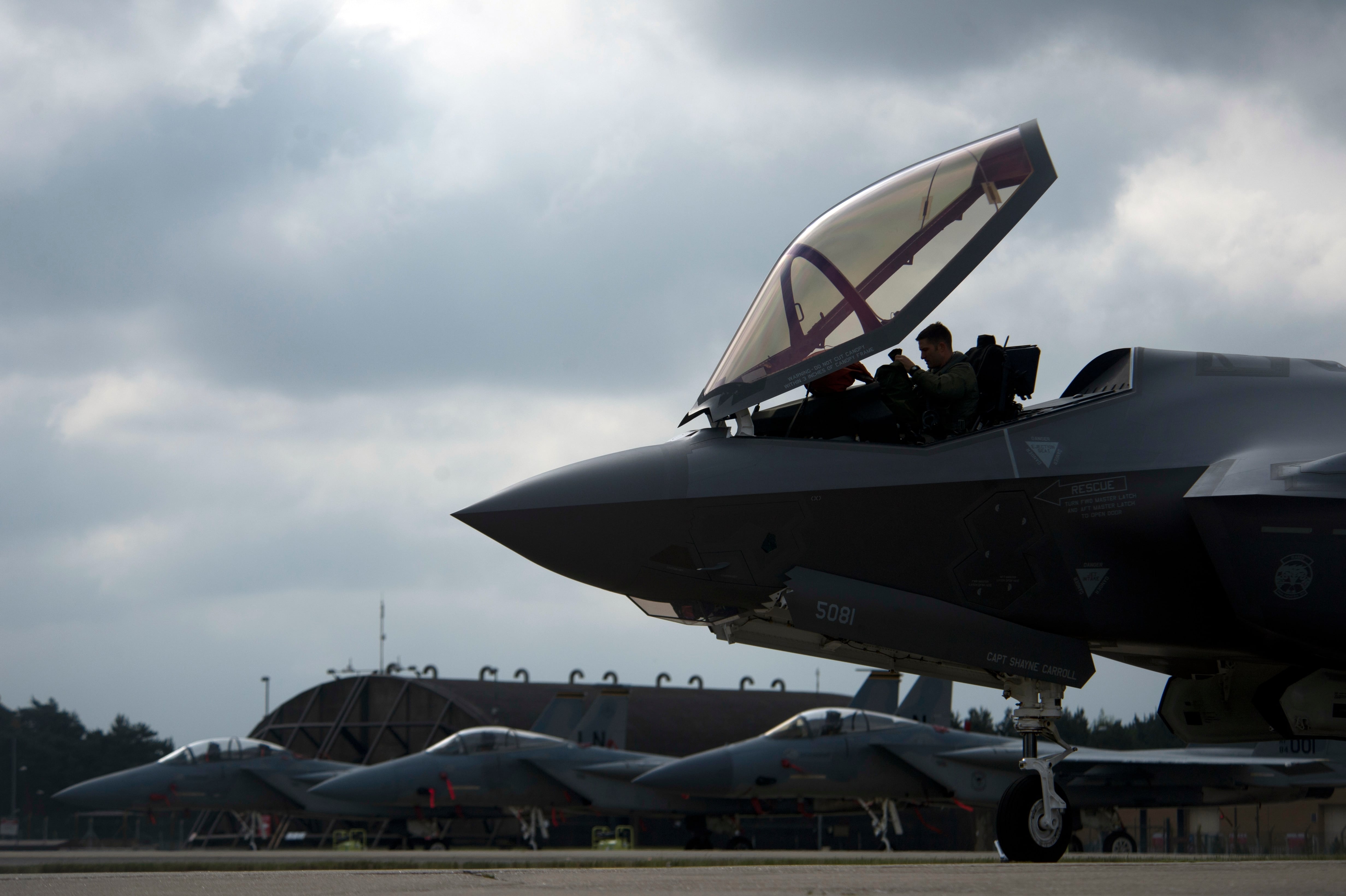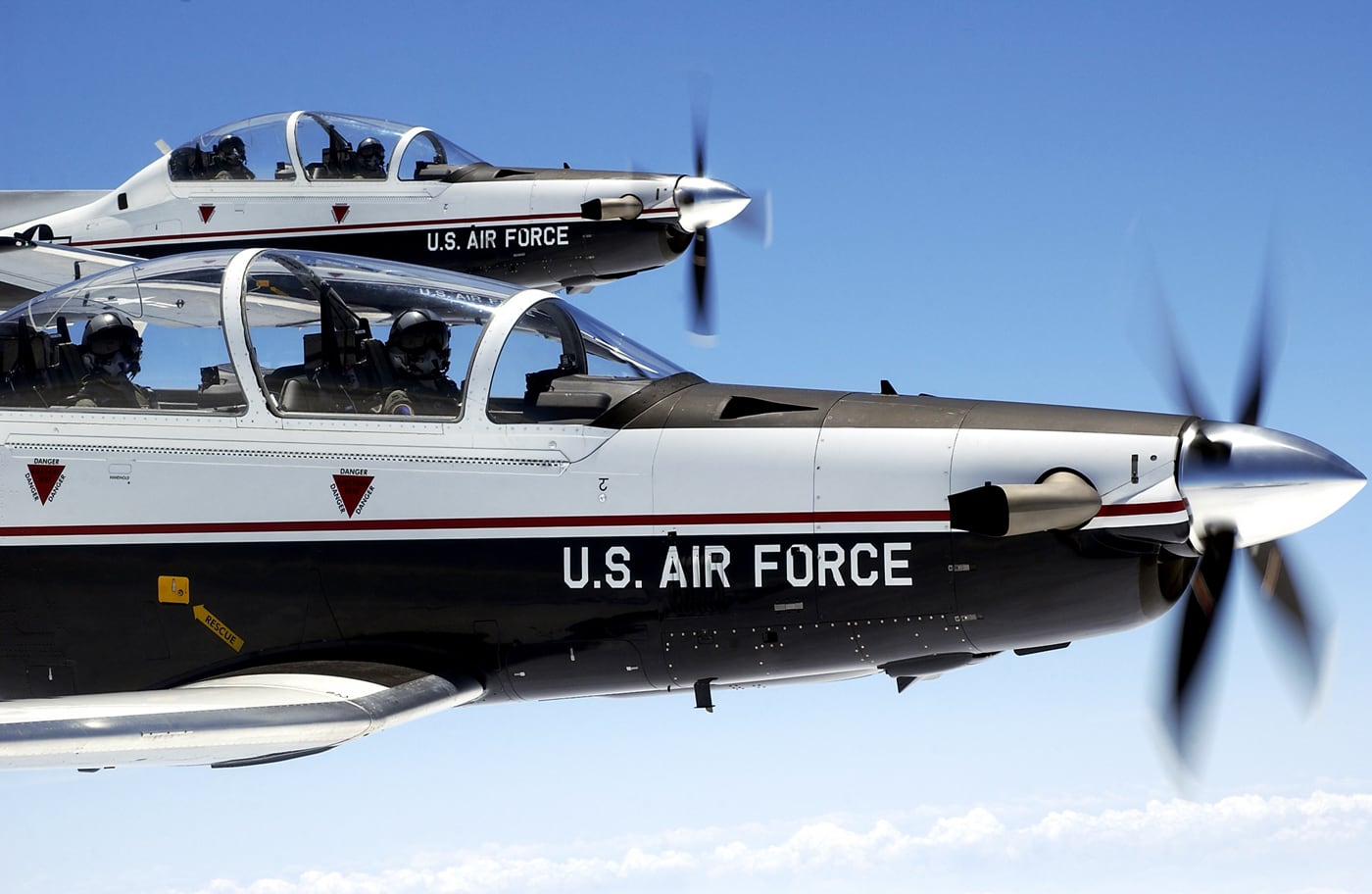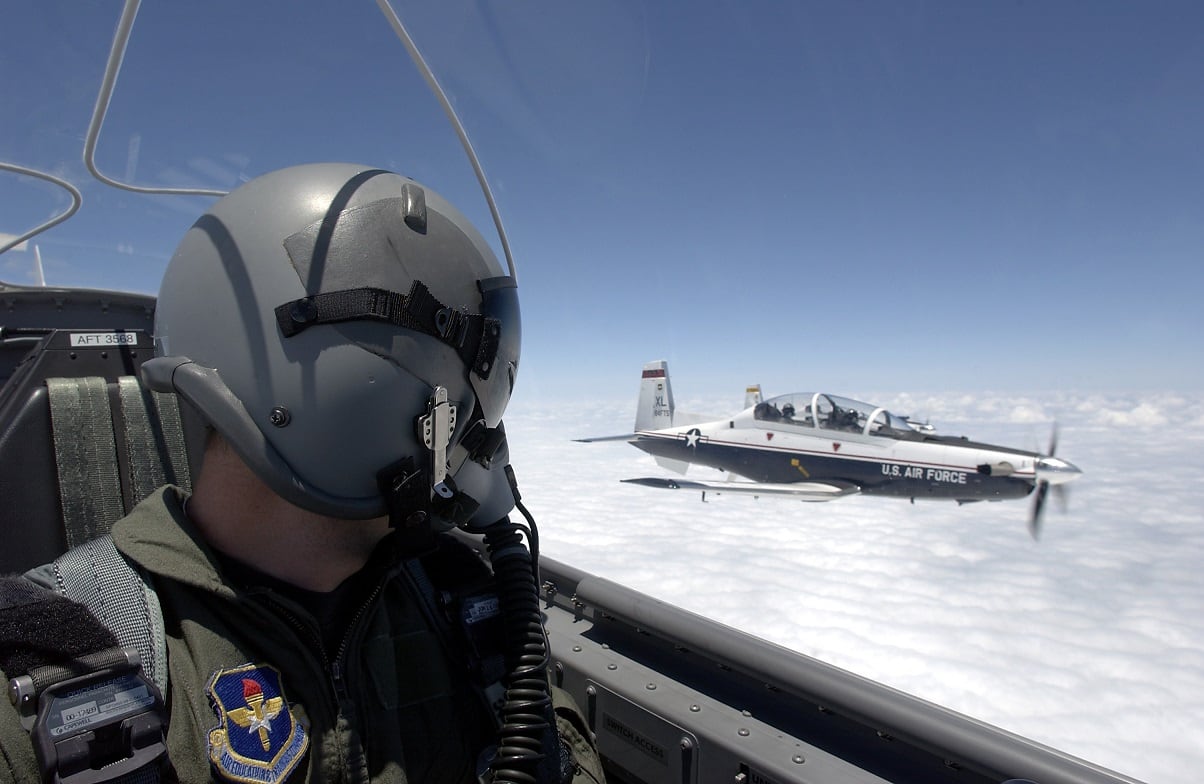The 19th Air Force’s fleet of T-6 trainers were grounded after 13 unexplained events, such as hypoxia, in a single week, Air Education and Training Command said Thursday.
The bulk of the unexplained physiological events ― 10 of them ― occurred at Columbus Air Force Base in Mississippi, said AETC spokeswoman 1st Lt. Geneva Croxton in an email. Two other events occurred at Vance Air Force Base in Oklahoma, and another happened at Sheppard Air Force Base in Texas.
Croxton said that the unexplained events included conditions such as hypoxia, or too little oxygen in the body; hypocapnia, or too little carbon dioxide in the blood; and hypercapnia, or too much carbon dioxide in the blood.
“Each event is being investigated, and it is too early to speculate about potential causes,” Croxton said.
RELATED

AETC announced the “operational pause” Wednesday evening, and said it was ordered by Maj. Gen. Patrick Doherty, commander of the 19th Air Force, to give the Air Force a chance to study the root cause of these problems, listen to and educate air crew, find solutions, and put them into place. The grounding took effect Thursday.

Earlier on Wednesday, AETC confirmed that the 19th had suspended all solo flights in T-6s due to concerns about events like hypoxia.
Stephen Losey is the air warfare reporter for Defense News. He previously covered leadership and personnel issues at Air Force Times, and the Pentagon, special operations and air warfare at Military.com. He has traveled to the Middle East to cover U.S. Air Force operations.




